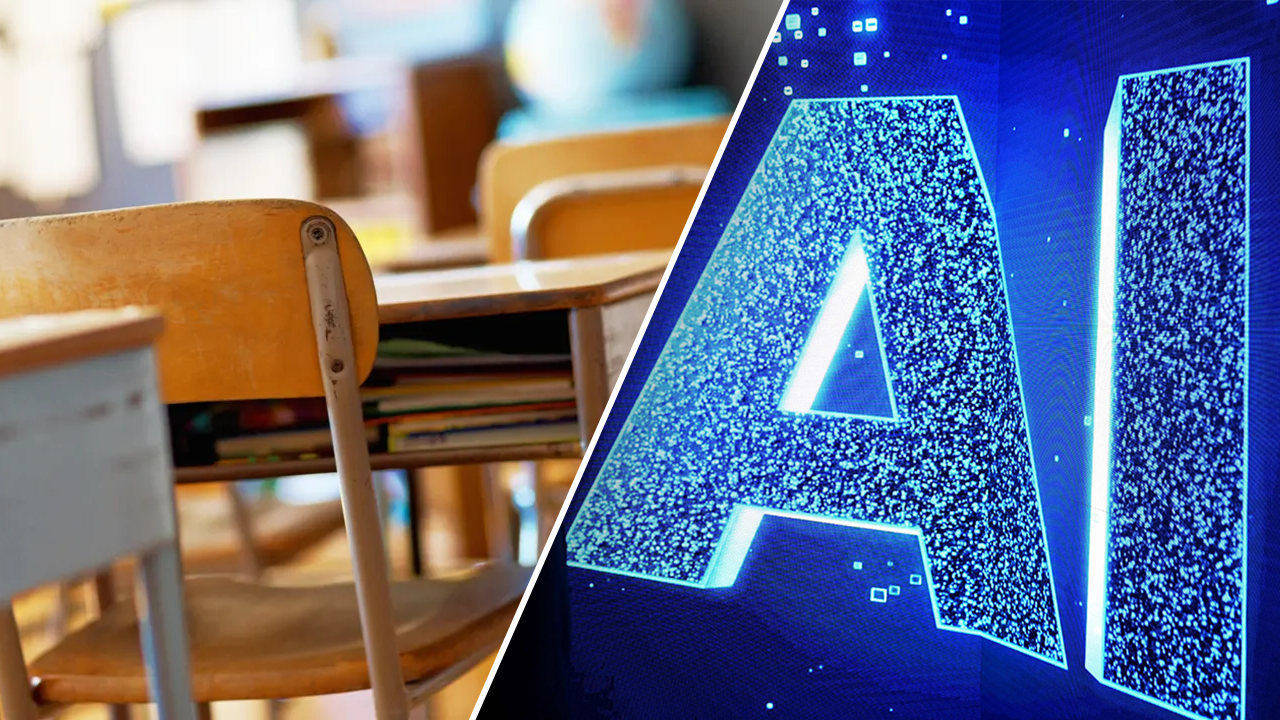If you’veread the headlinesin 2023, Artificial Intelligence (AI) is either comingto save or destroy education. From AI tools that can help proofread students’ work to chatbots that can act as a kind of virtual research assistant, there are applications emerging that could rapidly improve what students are able to do and how they are able to do it.
At the same time, ask any teacher, and you’ll hear myriad stories of AI-generated essays (many with incorrect information in them), and the yeoman’s work necessary to ChatGPT-proof their tests and quizzes.
Rather than look atthe wholeAI and educationuniverse, let’sfocus onone significant challenge confrontingK-12 educationtoday.
NYC CHARTER SCHOOL STUDENTS OUTSCORE PUBLIC SCHOOL PEERS ON STATE EXAMS
Thereare more schooling and educational opportunitiesavailable tofamiliesthan everbefore. This year, eight states(Arkansas, Florida, Iowa, Indiana, North Carolina, Ohio, Oklahoma and Utah)enactedor expandedK-12 choice programs where more than 90% of students are eligible to participate.
Artificial intelligence could help parents make the key decisions involved in choosing schools for their children. (iStock, Getty Images)
Those majordevelopmentsfollow the moves to universalstudenteligibility in Arizona and West Virginia in 2022.
Today, approximatelyone in five students in America live in a state with at least near-universal choice in K-12 education. Andaround20 million students nationwide are eligible for a private K-12 choice program of some type.
Addin the millions of students eligible for charter schools, magnet schools or transfers across district boundaries, andwe havetens of millions of parents looking for ways to determine what schoolor other education provideris best for their child.
Deciding ona schoolor tutor — orevensearching and filtering them — is a daunting task that factors in so many inputs:safety,quality,cost, community, convenience, extracurricular opportunities and reputation, to name just a handful.
Now, students and their parents can access funds to furtherpersonalizelearning. Perhaps that is one of the pandemic’s lasting legacies in education —a push for new priorities, organizing, operationalizing and opening pathways to schooling andlearning opportunities.
Imagine moving to a new state with your school-aged children and wanting to figure out the best fit for their education. An AI-powered bot could sift throughcountless school websites, local news sites, mapping tools, private sector sources, government sources and external review sites to find a slate of options for your student, your basketball player and your cellist.
Which schools have excellent teachers? Transportation options? A strong athletic program? A nice offering of extracurriculars?
At the same time, for those schools and providersparticipating in K-12 choice programs, information about how to pay tuition and provider costs could be easily filtered and highlighted for clarity.
Month after month, we have seen awareness and concern growing among parents with school-aged children. EdChoice’s November pollingconducted by Morning Consultreported78% of parents with school-aged children were concerned about the potential effects of AI–nearly 40% at least “very concerned.”
Afindinglike thisreinforces what we often suspect — parents are worried and overwhelmed, from small decisions like deciding what to pack for lunch to big ones such as where to send their children to school.
High-income earners andthecollege-educated are mostlikely to have heard of AI.Rural and low-income adults are the least likely to have heard of it.Therehas tobe considerable effort to designthese tools and access to them forless-resourcedcommunities.
CLICK HERE FOR MORE FOX NEWS OPINION
Otherwise, theinstitutions,social networks andinformation sourcesintendedto helplevel the playing field risk leavingbehindthese parents and students.
As a parent, I welcome any responsible technology –includinga superchargedtool via AI – that can aidthemajordecisions we make about our kids’ schooling and education.But I echothe majority ofpeople we surveyed who have at least some concerns abouthowwe will deploy and useAI.
At the same time, impressive andwelcome developments in the past couple years have increased the numbers of states and K-12 choice programs that help parents pay for different schooling options, including tutoring and learning materials. AI couldbecome a tremendous boost for us.
Whether Silicon Valley and EdTech can develop empathetic products and services guiding families instead of algorithms chasing clicks remains to be seen. AI designed for parents’ decision-makingmaysufficientlyadapt to critical feedback in the hopes of advancing personalized, student-centered matchingwith schools, tutors andothereducation providers.
The future of AI technologiesis one we should embrace with hope, caution andlaser-focused pragmatism.

 Video
Video Video
Video
